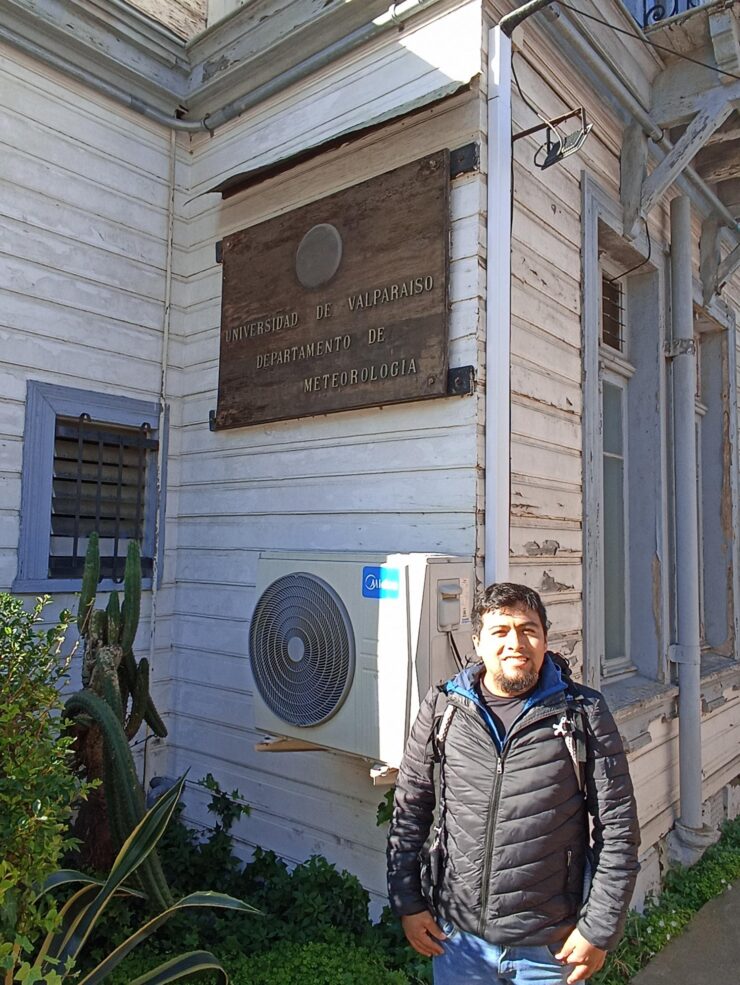 2022 SCAR Fellow, Christian Torres, has recently reported on his SCAR Fellowship. His project was titled “High resolution atmospheric and glaciological modelling for the South Shetland Islands on the northern Antarctic Peninsula”, and was hosted by Professor Dr. Deniz Bozkurt at the Department of Meteorology, University of Valparaíso, Chile. At the time of his Fellowship Christian was a PhD student at the Institute of Oceanography, Federal University of Rio Grande, Brazil.
2022 SCAR Fellow, Christian Torres, has recently reported on his SCAR Fellowship. His project was titled “High resolution atmospheric and glaciological modelling for the South Shetland Islands on the northern Antarctic Peninsula”, and was hosted by Professor Dr. Deniz Bozkurt at the Department of Meteorology, University of Valparaíso, Chile. At the time of his Fellowship Christian was a PhD student at the Institute of Oceanography, Federal University of Rio Grande, Brazil.
The Antarctic Peninsula is a key region for research into the impact of climate change on the cryosphere. Christian’s Fellowship was prompted by a need for detailed studies investigating cryosphere-atmosphere interactions on small island glaciers. The environmental conditions experienced in these areas limit field data collection, and these regions are poorly represented in global climate models, requiring the use of regional climate models (RCMs) with higher spatio-temporal resolution.
Christian’s Fellowship research aimed to:
- analyse the capability of the Polar version of the Weather Research and Forecasting (PWRF) model in producing accurate high resolution datasets of atmospheric variables, particularly the total precipitation and solar radiation, for the South Shetland Islands (SSI) on the northern Antarctic Peninsula (AP);
- force the new Coupled Snowpack and Ice surface energy and mass-balance model in Python (COSIPY) with PWRF and to evaluate its ability to simulate the glacier Surface Mass Balance (SMB);
- describe the local scale atmospheric (precipitation and solar radiation) and glaciological (SMB) characteristics on the SSI.
Outputs and future plans
The outputs of this Fellowship include the generation of substantial high-resolution climatic data for the SSI, enabling greater understanding of local atmospheric and glaciological processes. Christian is currently writing up the results of his work in collaboration with his host, Prof. Dr. Bozkurt, and intends to present at the 2024 SCAR Open Science Conference, among other conferences. Christian has already attended multiple conferences throughout his Fellowsip. Data generated during this project will be made freely available to the scientific community.
During his SCAR Fellowship, Christian was able to present his work to researchers at his host institutions, which “fostered a dynamic exchange of ideas” and expanded his personal research network. He plans to present his findings to undergraduate and postgraduate students at his home institution.
